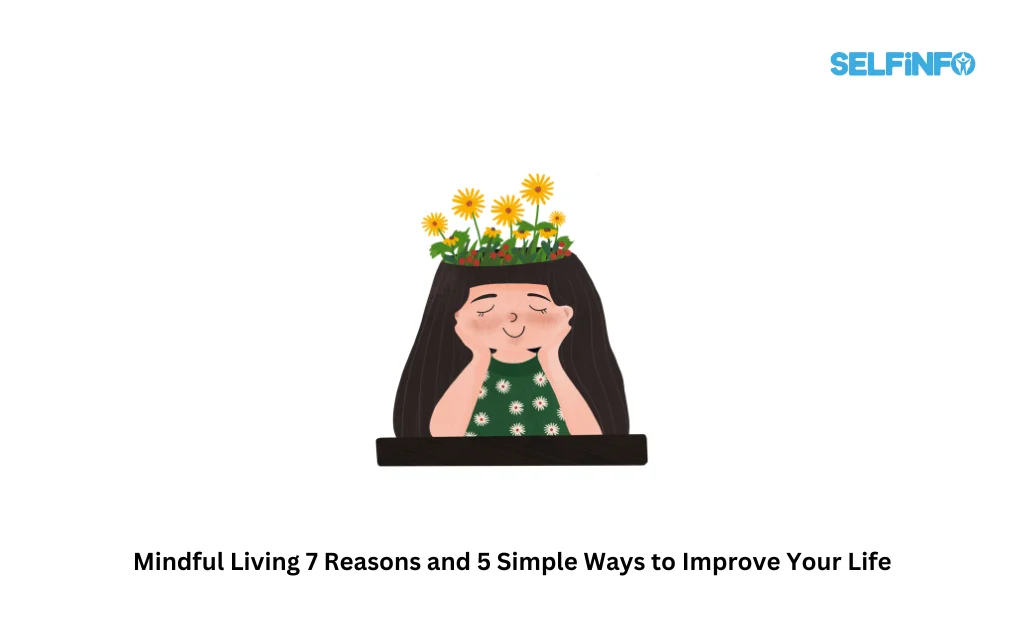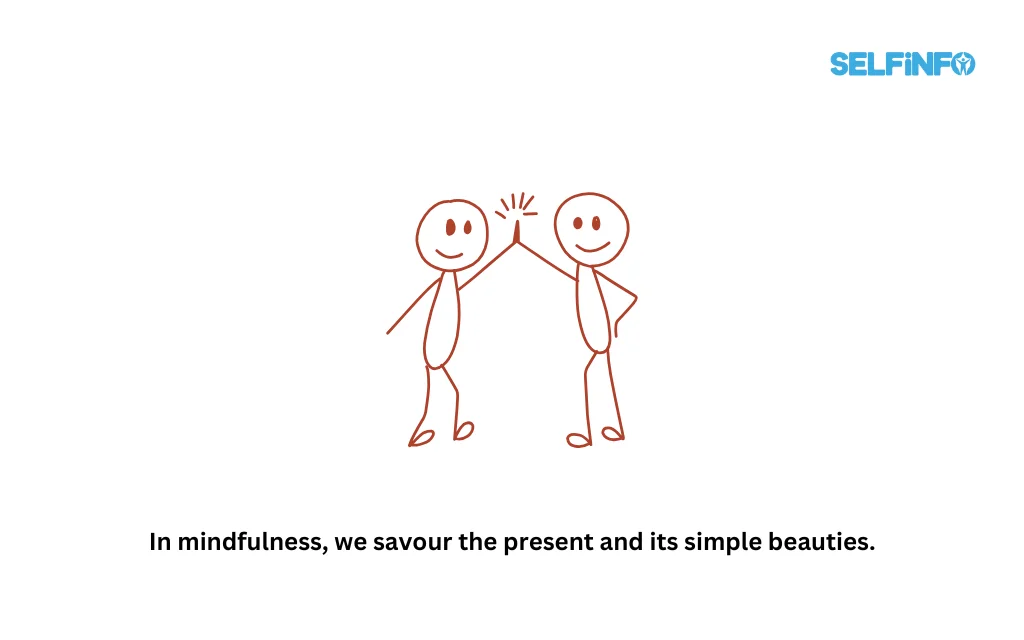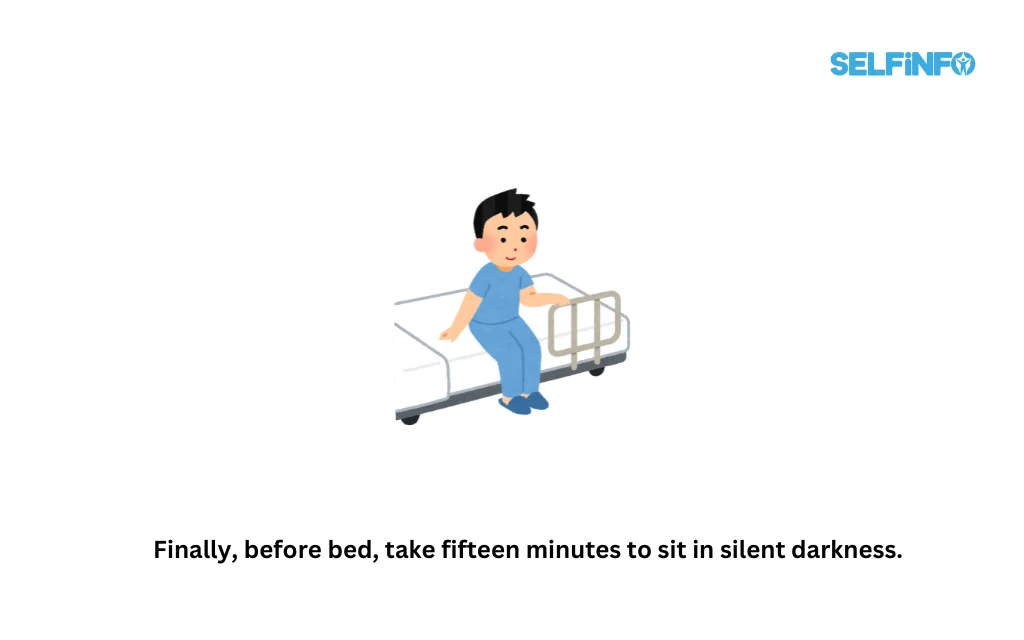Mindful Living took me back to that day when everything finally made sense. Like many, I experienced a life-altering epiphany, but mine unfolded as a ten-year journey of gradual and sometimes painful self-discovery.
My wife, a friend, and I were standing outdoors. I remember listening to my friend before he exclaimed, “I detest when you do that, Josh!” but I can not remember what we were discussing.
Confused, I questioned, “Do what?”
“You stopped listening and are now considering what you are going to say next,” he retorted.
My bewilderment gave way to shame. “No! That is not what I do, is it? My wife nodded in agreement as I glanced at her.
My life was altered by that moment. It was a sensation I never wanted to relive, but it was like hearing the trigger go off on a project that would ultimately lead me down a difficult path of introspection over the following ten years.
I am not talking about getting “caught” or feeling ashamed and embarrassed, but rather about realizing that my ignorance was the reason for other people’s pain.
I started learning mindfulness because I wanted to be a better husband, parent, and friend. This prompted me to perform PhD research on the impact of mindful present on our daily relationships.
What I found was a list of seven guidelines that everyone can follow when they totally commit to the present moment:

1. Mindful presence creates a heightened awareness of what we do in the moment…
…including thoughts as they arise, our actions taken as a result of those thoughts, and the impact of those thoughts and actions on others.
2. Mindful presence is the catalyst for self-reflection.
In other words, the more present we are, the more we can compare that particular moment to past interactions, which leads to more positive change.
3. Mindful presence nurtures unconditional acceptance, particularly in our close relationships.
We are more prone to accept events without passing judgment when we remain present.
4. Mindful presence evokes interaction.
People notice when we are fully present in the situation. Gravity is created when they become aware of us, bringing us closer together. individuals prefer to be around individuals who are willing to invest time, so when we become present, we notice them asking us to participate.
5. The more aware we are of the greatness of others, the more likely we will feel pride for those we care about.
People notice when we display our pride in an obvious way. Through the very initiative we fostered by being present, this inspires others to aim higher.
6. In moments of mindful presence, we are more likely to experience savoring the moment as we marvel in wonder at the simplest beauty.

Elevated appreciation gives ordinary experiences more depth, color, and richness.
7. The self-reflection referred to in #2 above results in a greater capacity for gratitude.
We savor as we think, and we grow grateful as we taste.
Fantastic, huh? I am sure I would be compelled to act more thoughtfully if I were reading this list, but how do we get there?
Here are five methods to develop and practice mindfulness. I suggest you give them all a try on a regular basis, switching between them:
1. One of the simplest methods is to walk with no destination in mind.
This could be carried out at your local mall, in your neighborhood, or even during a shopping trip. Give up the idea of a plan or a schedule and just let yourself go wherever your emotions lead you. Give yourself over to the current.
It is interesting to note that, depending on speed, driving might restrict your range of vision by up to 75%. You may see more of your surroundings while you walk, so enjoy it, but keep in mind that being in this moment is the most essential place for you to be.
2. Eat your food and consume your drink as if they were your last.

How would you eat the same meal if you knew it would be your last? Sure, it might have been a cheap frozen dinner. Would you take your time and appreciate it more? How would this affect your ability to appreciate the food you eat?
An alternative method of eating is to refrain from taking a single bite or sip of liquid until you have expressed your quiet gratitude to everyone involved, including the farmer who grew the tealeaf, the truck driver who transported it, and the grocery store employee who put it on the shelf.
You start to appreciate even the most basic things more when you consider all the hands that go into giving you that chance.
3. Next time you’re stopped at a red light, take the time to breathe deeply, filling your lungs and emptying them completely.
How many of these can you complete at a stoplight? Observe your surroundings and take note of them as you breathe. What are other people doing? What tales do they have?
The ease with which you may accept a green light that has just turned red will surprise you. You might even start looking forward to your next chance to pause and think instead of feeling angry about being obstructed.
4. Next time your phone rings, resist the urge to answer.
As you gather your ideas and get ready to respond, let it ring a few times. Consider the caller. How do they appear? What state of mind do they possess? What is life like for this individual, even if they are a Sri Lankan employee calling to collect a debt? Before you, how many angry Americans have they spoken to?
5. Finally, before bed, take fifteen minutes to sit in silent darkness.

Make a note of everything you encounter, including the sound of a fan and the feel of your butt against the surface of your chair. Take a deep, leisurely breath and give yourself permission to relax and just be. After this, you will be shocked at how well you sleep!
The goal of each of these trainings is to develop the skill of purposefully focusing on the current situation as it develops and accepting it without passing judgment.
Being consciously present is a miracle, but it is also achievable, and we may all experience it every day while we are with the people we care about.
